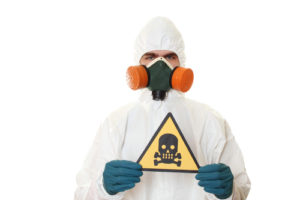Does Black Mold Smell?

The Nose Knows.
When it comes to mold and fungus, out of sight is not out of mind. Sometimes an infestation develops in a hidden or out-of-the-way space, and the first clue comes through your nose rather than your eyes. What causes the odor, and what steps should you take to remove it?
The Nose Knows
Mold and fungus produce several gasses known as microbial volatile organic compounds, or MVOC. Many of them are odorless, but some of these gasses emit that stale, musty odor that’s commonly associated with mold.
While the smell of mold is unpleasant on its own, it’s indicative of a more serious health threat. If you can smell mold, chances are high that you’re inhaling both MVOC and mold spores themselves. Some of these compounds are mycotoxins that can cause physical and mental ailments ranging from sinus infections to depression.
How Do You Remove Mold Odor?
Scented candles, sprays and other conventional air fresheners are only temporary solutions because they simply mask the smell. The only way to truly rid your home or office of mold odor is to remove the source.
If you smell that tell-tale musty odor, don’t rely on an over-the-counter mold test. Professionally trained technicians such as the ones at Stern Mold have the know-how to get accurate results and the experience to determine where to look for mold and fungus.
MoldExterm: A Non-Toxic, Non-Invasive Solution
Traditional mold remediation will remove the smell along with a good chunk of building materials. Contact us for a free mold inspection in NYC or northern NJ and learn why MoldExterm is the most effective way to remove and prevent mold and fungus.
